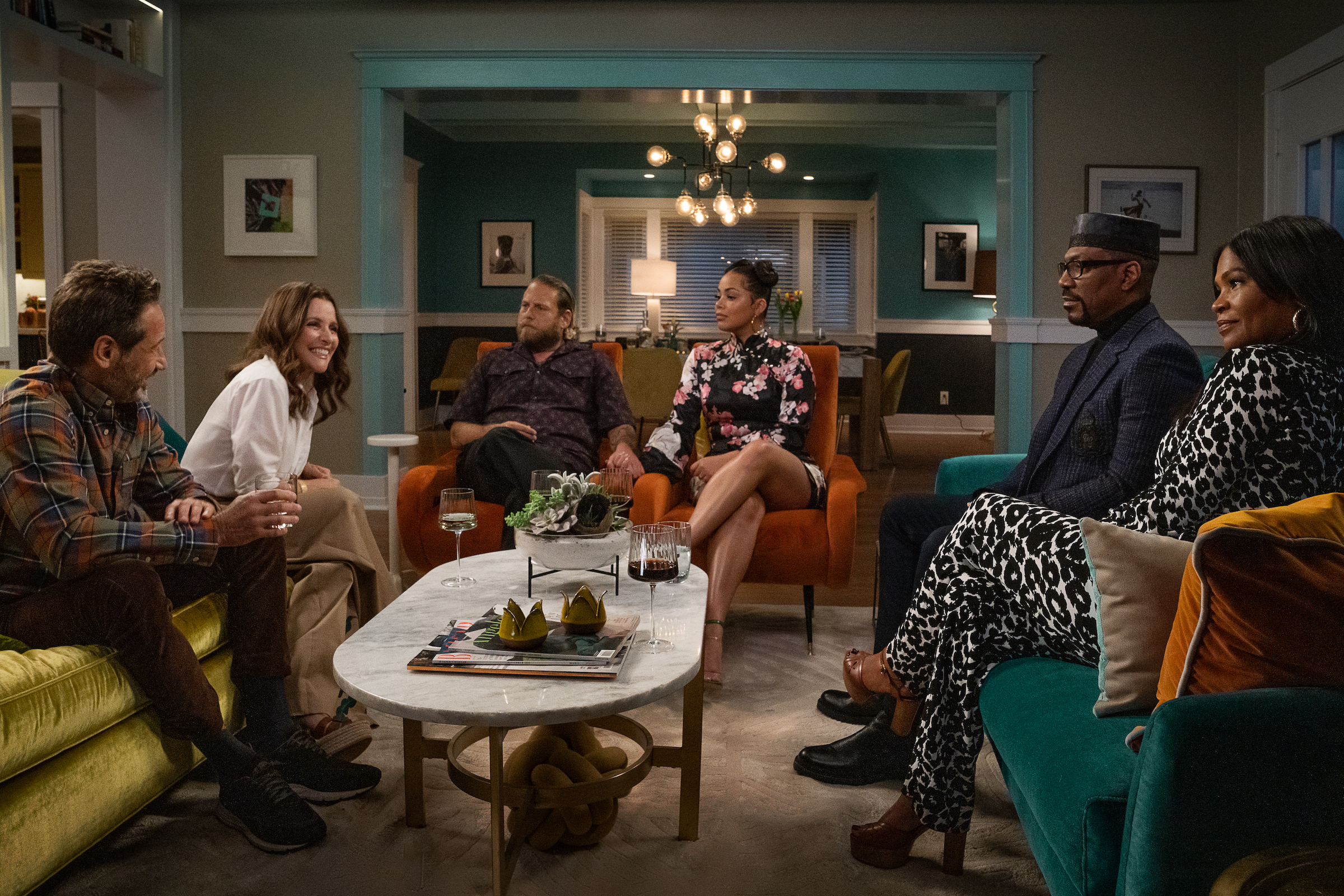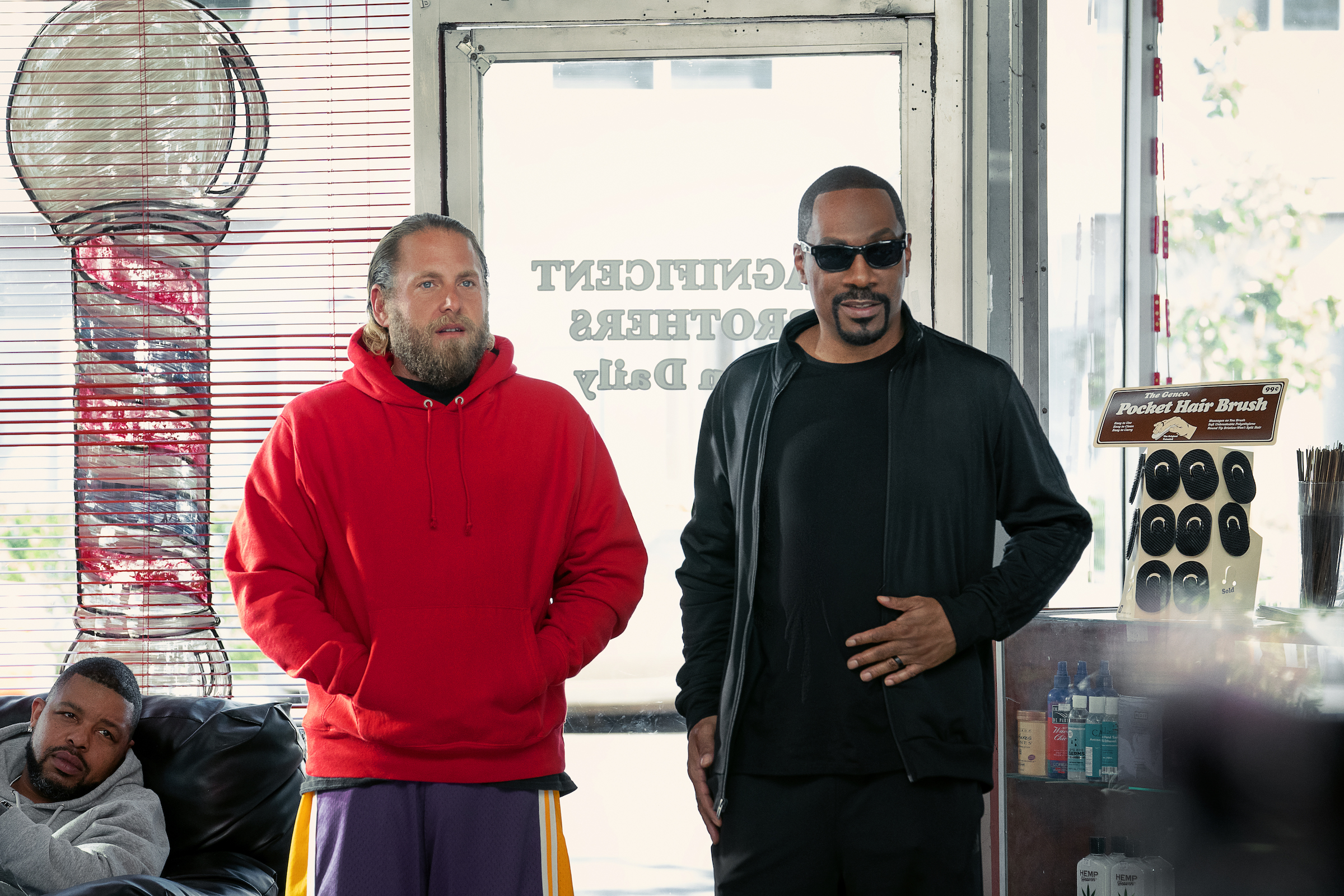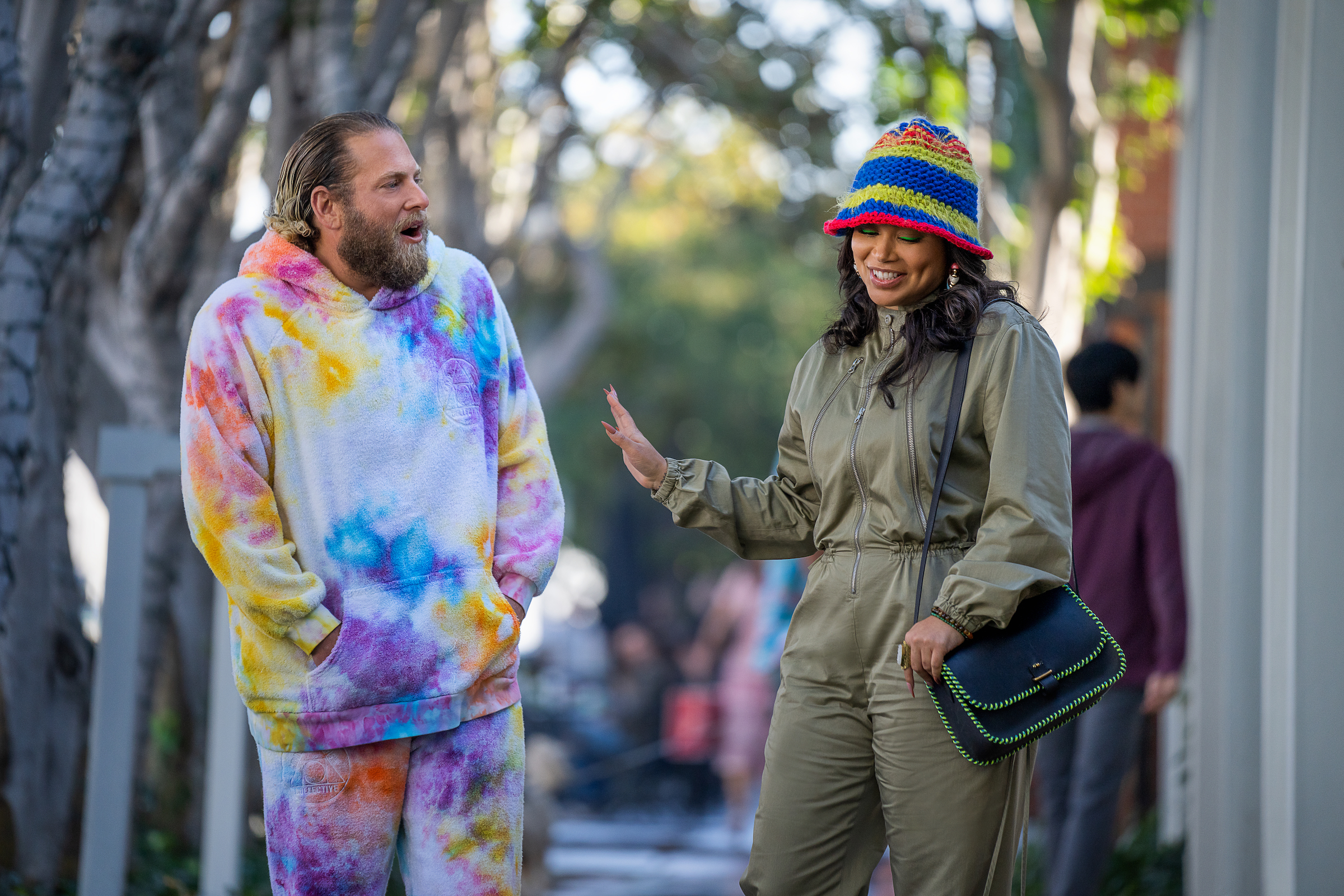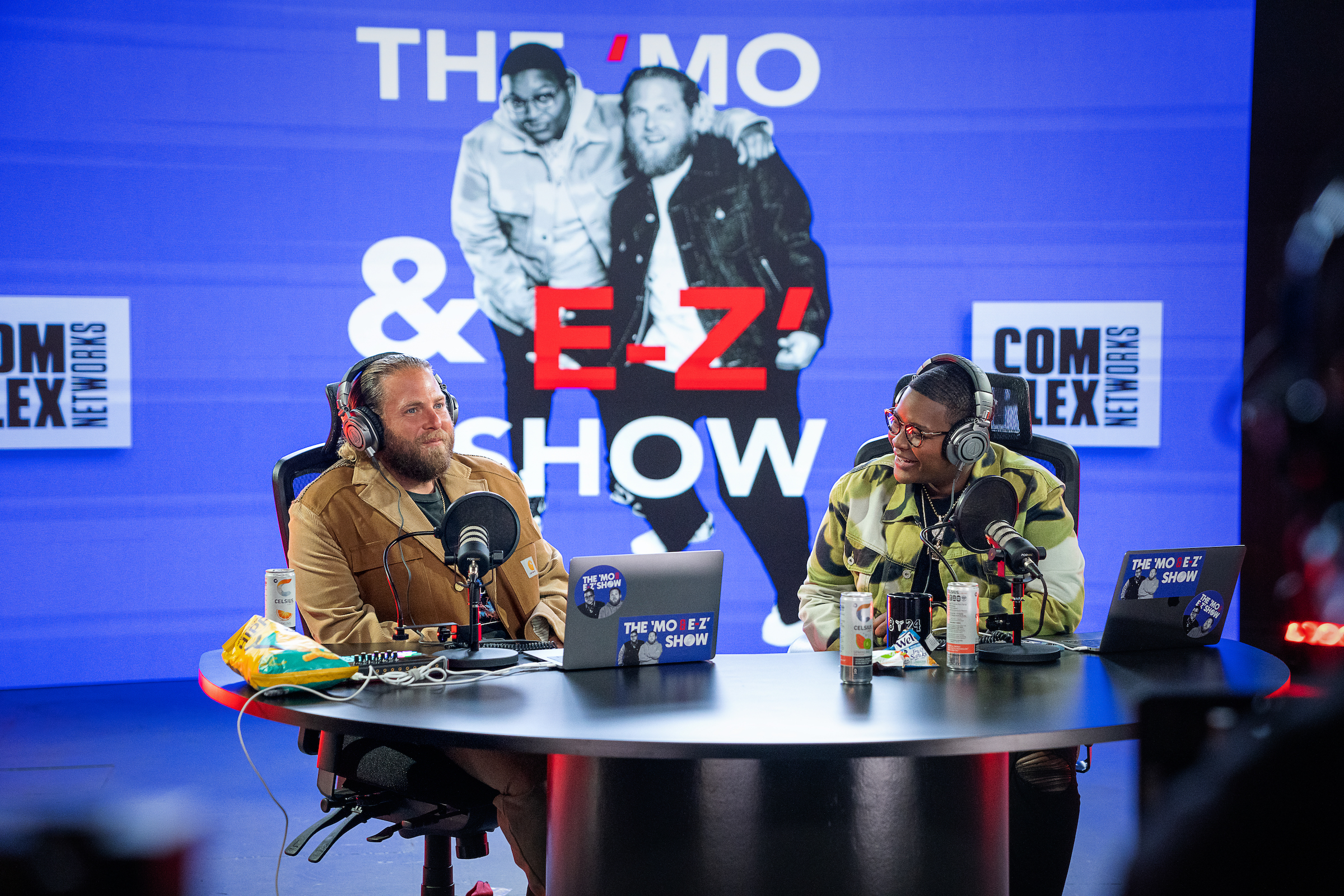
In the real world, interracial couples are everywhere. It’s only in the movies that people don’t quite know what to do with them. Should they be presented without comment, an implicit acknowledgement that their existence is no big deal? Or do they need to be treated as somehow special, or at least different enough from the norm to merit extra consideration—and then, how best to avoid overthinking the whole thing?
You People—directed by Black-ish creator Kenya Barris and cowritten by Barris and Jonah Hill—is an overthinking movie in every way, which is different from being a thoughtful one. That’s a drag, because the movie’s first half is promising, suggesting that this just might be the sort of comedy that addresses things nobody wants to talk about. Instead, it gives us characters who behave abominably, or at least just cluelessly, so they can become teachable moments: a middle-aged white Jewish woman who’s fixated on Black hair and giant gold hoop earrings, which she perceives as ethnic novelties; a Black man who, on purpose, brings his prospective son-in-law, who happens to be wearing a red hoodie, into a Crip-territory barber shop. You People stretches hard to make its points, but for the most part it’s terminally safe.

Hill stars as Ezra, a lonely Jewish guy in his mid-thirties stuck in a soulless finance job. His ditzy mother Shelley (Julia Louis-Dreyfus) looks the other way when it comes to his tattoos and his taste in clothes, which leans to sneakers, hoodies and baggy shorts. She just wants him to settle down with a nice girl, preferably one with a doctorate. But Ezra is looking for something he can’t define, and he finally finds it when he meets Amira (Lauren London), whom he initially mistakes, with some good reasons, for the Uber driver he’s called. Her feathers are ruffled, also with good reason: Ezra seems to have taken stock of her midrange car, a Mini Cooper, and the color of her skin and made a snap judgment. Somehow, these two get past their rancorous first meeting and discover they really like one another. Before long, they’re snuggling under a blanket fort. They’re cute as heck, and they know it. They also seem to be ridiculously happy.
But then it’s time for Amira to meet Ezra’s family. Shelley falls all over herself to make it clear to Amira she’s not a racist, a riff on the tone-deaf overeagerness of so many well-meaning liberals. Ezra’s father, played by David Duchovny, also embarrasses himself, confessing his obsession with Pimp My Ride’s Xzibit, hoping to prove that he’s down with Black folk. Somehow, Amira and Ezra survive this awkward meeting, but at least Ezra’s parents, for all their clumsiness, try to be welcoming to their future daughter-in-law. Amira’s parents, who are Muslim, would prefer to have nothing to do with Ezra: her rigid, righteous, and judgmental father Akbar (Eddie Murphy), and mother Fatima (Nia Long, who has roughly two lines of dialogue), view him as being wholly unfit for their daughter.
Akbar sets out to sabotage the relationship, often using devious means. Murphy is a good enough actor to make this character reasonably believable and sometimes mildly sympathetic, but the movie tries to set up a parallel between the two sets of parents that feels false: Shelley may be dumb, and even offensive in her overreaching, but she’s not aggressively mean. Akbar is simply behaving like a horrible human being, but somehow we’re supposed to ascribe his behavior to cultural differences.

Read more reviews by Stephanie Zacharek
The multiple misunderstandings and misfires between these struggling lovebirds and their respective future in-laws becomes the movie’s main grind, and it’s exhausting. Louis-Dreyfus, who specializes in self-humiliation and is pretty damn good at it, is forced into far too many dumb, slapsticky situations: at one point, she angers and disgusts Amira and her friends when she accidentally yanks off one woman’s weave. These characters seem unable to ever laugh at their differences or misunderstandings, even in the mildest circumstances.
There are subtler ideas in the mix: at one point Ezra tries to console Amira, a costume designer, after she’s failed to land a prime gig; he doesn’t realize that doors that have swung open for him have been far heavier for her to budge. But while Hill is a charming actor with perfectly zoned-out comic timing, his best scenes aren’t the ones with London’s Amira. They’re with his best friend Mo (Sam Jay, of HBO Max’s Pause with Sam Jay), who’s also his partner in a podcast venture. These two use their platform to talk about the culture at large, but they also speak frankly and often perceptively about the racial rift in this country.
When the two are just talking casually, they’re terrifically funny. Mo gets a gander at the Tiffany engagement ring Ezra has bought for Amira and bemoans its tininess. Ezra says he’ll solve the problem by telling his beloved it’s his “grandma’s ring from the Holocaust.” Mo agrees this is a good solution, but warns him that the little blue box will give the game away: “You wanna put it in a satchel and dirty it up.” Talk about the Blacks and the Jews finding accord: this is where You People gets real.

The patter between Mo and Ezra criss-crosses the movie, and it’s the smartest thing in it. At one point Mo says on the podcast—and you can hear the regret in her voice—that Black people in this country will never be cool with white people, using a somewhat wacky analogy to make her point. “It’s kind of like when you cheat on a woman; you try to move forward but you never can.” She elaborates: “For Black people in this country, white dudes are the cheater. And we’re the chick who can’t move on. No matter how bad we want to, we can’t forget what you all did, and what you’re all still doing.”
That’s a stark, painful statement, and though the movie scrambles for a happy ending, Mo’s observation hangs in the air like a counterpoint. The movie’s unspoken truth is that interracial coupling is still a hot-button issue in this country, for reasons ranging from outright racism to feelings that one side can never adequately understand the generational experiences of the other. You People is right about one thing: matters of the heart that shouldn’t be anyone else’s business are often treated as everyone’s business. An interracial relationship should be no big deal; but one person’s “no big deal” is another person’s crossed line. Which is probably why we need to keep making movies about these relationships, in the hopes that maybe, someday, Mo’s theory will no longer ring true.
More Must-Reads from TIME
- How Donald Trump Won
- The Best Inventions of 2024
- Why Sleep Is the Key to Living Longer
- Robert Zemeckis Just Wants to Move You
- How to Break 8 Toxic Communication Habits
- Nicola Coughlan Bet on Herself—And Won
- Why Vinegar Is So Good for You
- Meet TIME's Newest Class of Next Generation Leaders
Contact us at letters@time.com